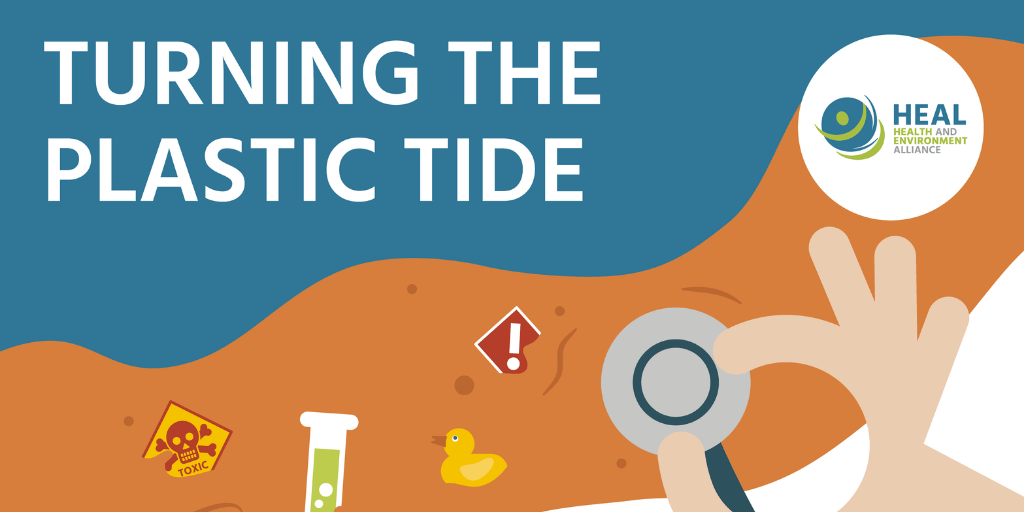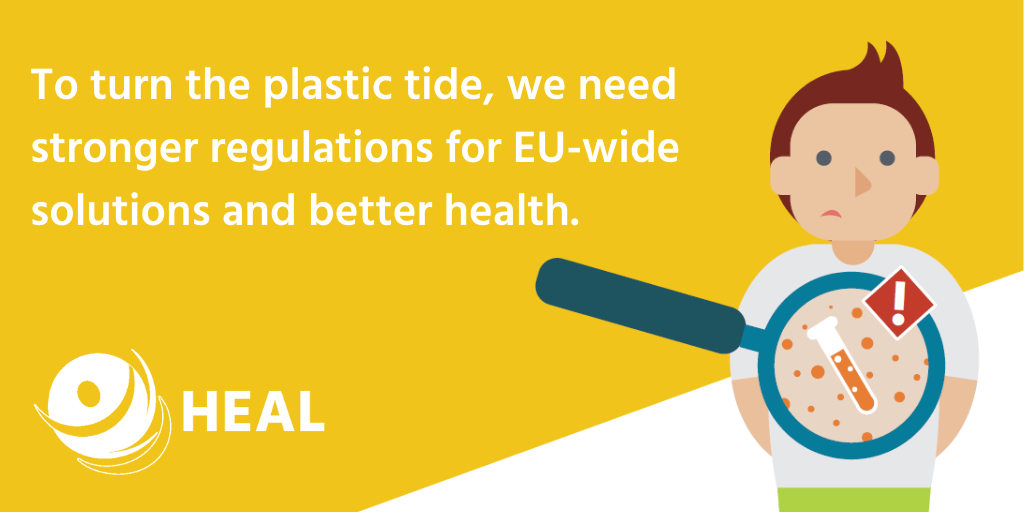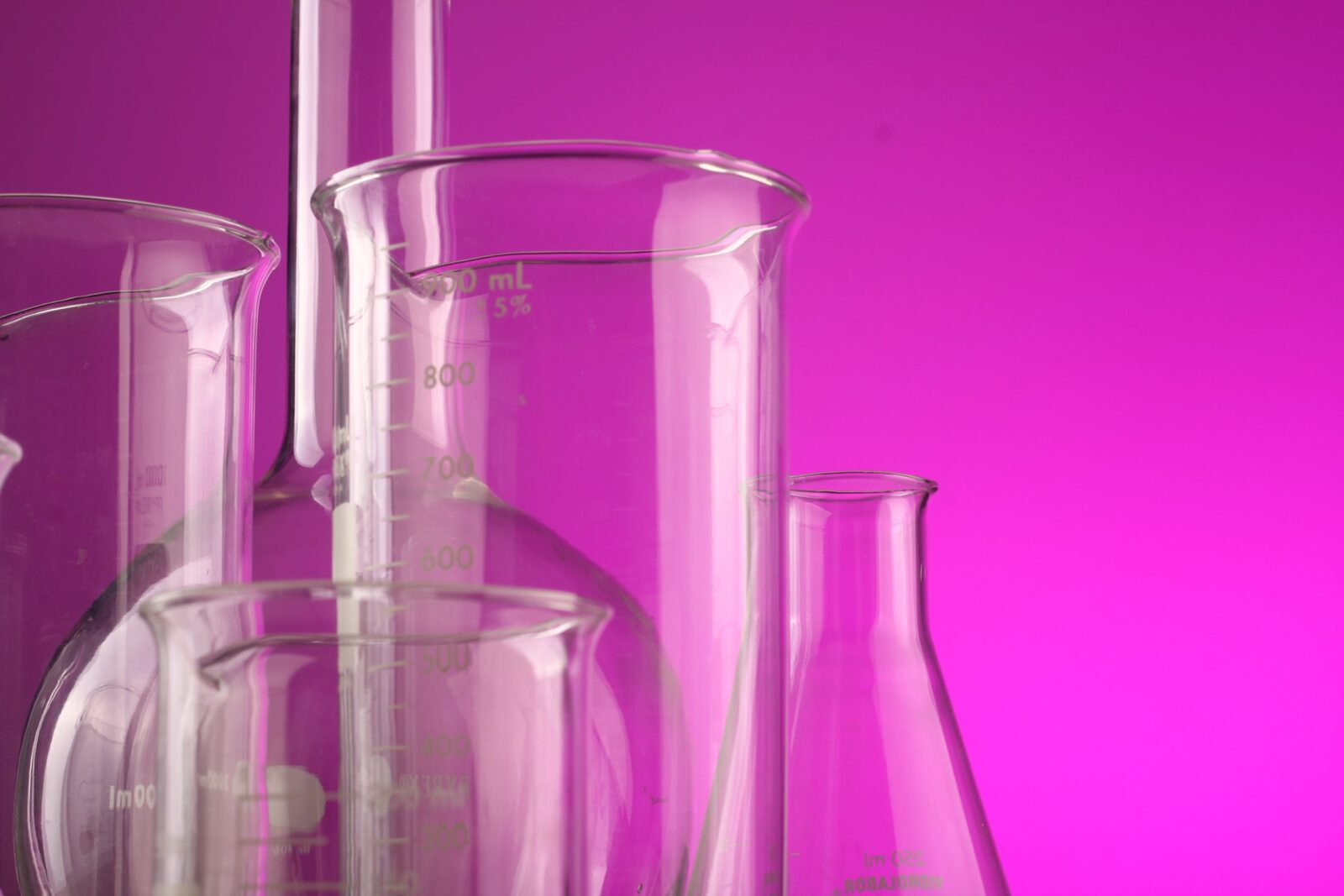The REACH legislation sets out how the European Union registers, evaluates, authorises and restricts chemicals. The sorely needed overhaul of this juggernaut of EU chemicals legislation is an opportunity to strengthen its effectiveness in protecting our health and the environment through better and earlier identification of hazardous chemicals.
The production, use and recycling of plastics are not only the source of significant pollution of our environment, but they also have consequences for our health. HEAL’s work on chemicals and health aims to shine a light on a rarely explored perspective to plastic pollution: the undeniable link between the synthetic chemicals used in plastics and their effects on our health.
While most of us think of plastics only in their final form as consumer products, food packaging or other useful items, all plastics are made of complex mixtures of chemicals. It is the properties of those chemicals – and particularly the ‘additives’, which are typically not bound to the plastic material itself – that cause concerns for health.

The chemicals in plastic put our health at risk
The word ‘plastic’ refers to a huge variety of synthetic chemical substances that can be moulded or shaped into useful forms. The manufacture of plastics starts with small molecules, called “monomers”, which are repeated thousands or millions of times and assembled into long strands, called “polymers”. Almost all plastics derive from fossil fuels, especially natural gas.
Many of the largest and most hazardous chemical families – including heavy metals, flame retardants, phthalates, bisphenols, and fluorinated compounds – are directly associated with plastics production.
Plastics represent a tremendously diverse set of compounds, from the coatings and resins used in construction and industry, to the synthetic textiles making up our clothes, to the rubber granules recycled from tyres which end up on football fields our children play on. We ingest or inhale these substances daily, and many have serious impacts on our health.
Exposure to chemicals used in plastics, like flame retardants, endocrine disruptors, ‘forever chemicals’ or PFAS, bisphenol A (BPA) and phthalates, have been associated with a myriad of potential health impacts. For example, health concerns related to endocrine disruptors include reproductive disorders, development dysfunction, behavioural disorders, thyroid problems, low birth weight, diabetes and obesity, asthma, breast and prostate cancers.
Turning the plastic tide
To turn this plastic tide around, we need stronger regulations for EU-wide solutions and better health.
Solving the environmental pollution and health impacts of plastics is only possible by acknowledging that the problems of plastics are inextricably linked to chemical safety. Effective protection of health and environment will require stronger, more efficient and protective EU-wide regulations on chemicals and articles in which they are used. And those regulations need to encompass the entire lifecycle of plastics if they are to truly contribute to the transition to a non-toxic circular economy.

Our report ‘Turning the Plastic Tide’ puts forward recommendations for regulators to turn the plastic tide, including:
- Protect and be consistent
- No substance of very high concern (SVHC) should ever make its way into consumer products or food.
- It is high time to crack down on plastics additives.
- Rather than treating substances one by one, we must start regulating substances in groups. The reality of our exposure to mixtures, which is particularly relevant when addressing plastics, must be taken into account in chemicals assessments and regulations.
- Regulations on recycled materials should be the same as for virgin materials
- Anticipate and communicate
- Implement essential EU principles such as the precautionary principle in cases of scientific uncertainties and the polluter-pays principle. Do not let substances that are not proven safe enter the market.
- Avoid contaminating the future: do not allow recycling of plastics with hazardous additives and components.
- Safe substitution must be anticipated and put more focus on in regulatory processes in order to avoid regrettable replacements, when a substance or group of substance are being restricted.
- Ensure full transparency on chemical content throughout the supply chain and towards consumers.
Petition: Act now to ban PVC! HEAL and other organisations call on EU policymakers to develop ambitious phase out strategies for the harmful plastic. Learn more and sign the petition here.
Read this next to find out more about the chemicals in plastic that put our health at risk:
- HEAL reports:
- Turning the Plastic Tide – The chemicals in plastic that put our health at risk (September 2020). Available in English, French, German, Italian and Spanish.
- Food contact materials and chemical contamination (May 2019)
- Toxic Soup: Dioxins in Plastic Toys (November 2018)
- HEAL’s vision for Europe leading the way towards a non-toxic environment, available in English, Dutch and French (June 2018)
- Many chapters of the report ‘Turning the Plastic Tide‘ are also available as stand-alone factsheets:
-
- A spotlight on bisphenols
- A spotlight on endocrine disrupting chemicals (EDCs)
- A spotlight on flame retardants
- A spotlight on microplastics
- A spotlight on our historical plastic burden
- A spotlight on phthalates
- A spotlight on polyfluorinated and perfluorinated compounds (PFAS)
- A spotlight on PVC: an especially problematic plastic
- A spotlight on unregulated polymers
- Infographic: Human and environmental health impacts of the plastic lifecycle
- Infographic: The typical chemical lifecycle of plastics
- Infographic: What are plastics?
- Table 1: Common plastic polymers and their associated monomers
- Table 2: Typical plastics compromising common consumer products
- Table 3: Categories of additives and typical examples
-
- Download our additional resources on plastics and health in French:
-
- Report: Plastique – Inverser la Tendance
- Infographique : Cycle de vie chimique typique des plastiques
- Infographique : Impacts du cycle de vie des plastiques sur la santé
- Infographique : Les plastiques, c’est quoi ?
- Pleins feux sur l’historique de notre fardeau plastique
- Pleins feux sur la perturbation endocrinienne
- Pleins feux sur le PVC : un plastique particulièrement problématique
- Pleins feux sur les bisphénols
- Pleins feux sur les composés polyfluorés et perfluorés
- Pleins feux sur les microplastiques
- Pleins feux sur les phtalates
- Pleins feux sur les polymères non réglementés
- Pleins feux sur les retardateurs de flamme
- Tableau 1 : Polymères plastiques courants et leurs monomères associés
- Tableau 2 : Plastiques typiques comprenant des produits de consommation courants
- Tableau 3 : Catégories d’additifs et exemples typiques
-
- HEAL’s press statements, letters and opinion pieces:
- ECHA Guest Corner – Turning the plastic tide: how upgraded chemicals regulations are piece and parcel of addressing the plastics challenge (October 2020)
- New science commentary: How fossil-fuel derived pesticides and plastics harm health, biodiversity, and the climate (May 2020)
- A post COVID-19 world – Enabling lasting solutions to the plastic pollution crisis for a more resilient economy (April 2020)
- Why regulation is the key to protecting today’s and future children from toxic plastic toys (October 2019)
- New study on widely used plastic products confirms toxicity of chemical content – Health groups call on new European Commission to make addressing chemical pollution a priority (September 2019)
- EU Parliament misses the mark on putting end to toxic chemicals in children’s toys made from recycled plastics (March 2019)
- UNSAFE: New EU rules allow toxic chemicals in children’s toys and other products made of recycled plastics (February 2019)
- Other HEAL resources:
- To illustrate how chemicals in (plastic) food wrappings can impact people’s health, HEAL developed an infographic (available in English, German, French and Spanish*) and a set of fact cards (in English, German, French, Czech and Spanish*), available for download.
- HEAL is part of several coalitions aiming to put a spotlight on plastics, chemicals and health:
- The EDC-Free Europe coalition is a coalition of public interest groups representing more than 70 environmental, health, women’s and consumer groups across Europe who share a concern about hormone disrupting chemicals (EDCs) and their impact on our health and wildlife. HEAL hosts the EDC-Free Europe secretariat
- HEAL is part of the EDC Strategies Partnership, a monthly webinar series co-chaired by the Commonweal Biomonitoring Resource Center, Commonweal Healthy Environment and Endocrine Disruptor Strategies (HEEDS), the Health and Environment Alliance (HEAL) and the Collaborative on Health and the Environment (CHE).
- The #BreakFreeFromPlastic movement is a global movement envisioning a future free from plastic pollution. Since its launch in 2016, more than 8,000 organizations and individual supporters from across the world have joined the movement to demand massive reductions in single-use plastics and to push for lasting solutions to the plastic pollution crisis.
- The Plastic Health Coalition works on more research, prevention and solutions to the potential negative health effects of plastics.


